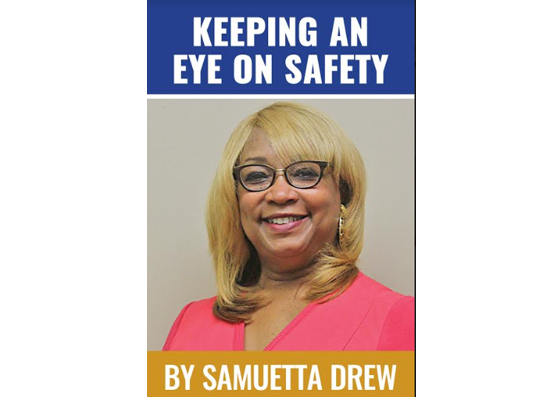By Samuetta Hill Drew
Almost everyone you know has received at least one fraudulent phone call, email, or social media request to purchase or send money to a particular site for what sounds to be a legitimate and wonderful opportunity. It is like the old saying “when something sounds too good to be true, most of the time it is.”
This month I have shared with you the different types of international scams being perpetrated on average individuals who are sympathetic to the Ukrainian people during the Russian invasion. The world has responded to Russia’s invasion of Ukraine with an outpouring of support for the Ukrainian people. This outpouring of support has not escaped the notice of scammers, who are more than willing to take advantage of people’s desire to assist. Security researchers say that war creates all the emotional triggers, such as a sense of urgency that scammers exploit for their own personal gains.
With the stock market indexes down, individuals are worried their investment account will not yield them the needed revenue to live financially peaceful during retirement. The criminal enterprises are ready to persuade them they have a guaranteed way for them to invest and earn big money without any risk.
Some criminal enterprises have been known to impersonate a friend or professional associate and send you an online request to join them investing into what seemingly appears to be a valid investment opportunity. The con artist understands the psychology behind rising inflation, down stock market indexes and rising gasoline prices. They know frightened investors are more likely to fall for scams involving gold, cryptocurrencies (discussed last week), foreign currencies or fake investment opportunities. Vet everything, even a request from a so-called friend or colleague.
Lastly, scammers are now exploiting dating websites and social media. They lure unsuspecting individuals into thinking they have found true love with a Ukrainian person. Not long after the fraudulent relationship deepens, a request comes for much needed emergency funds to be sent to him or her. It may indeed be a real person trying to make a connection. But as a rule, and/or common practice, do not send money to a stranger, even if you believe you know them online.
Hopefully, the articles this month highlighting the most common types of scams being conducted during this Russian-Ukrainian crisis, which include fundraising, phone calls, emails, banner ads, cryptocurrencies, dating, investment, and impersonation (identity theft) has or will be helpful to you. Knowledge and avoidance of cybercriminals’ different scams can help you Keep an Eye on Safety.




